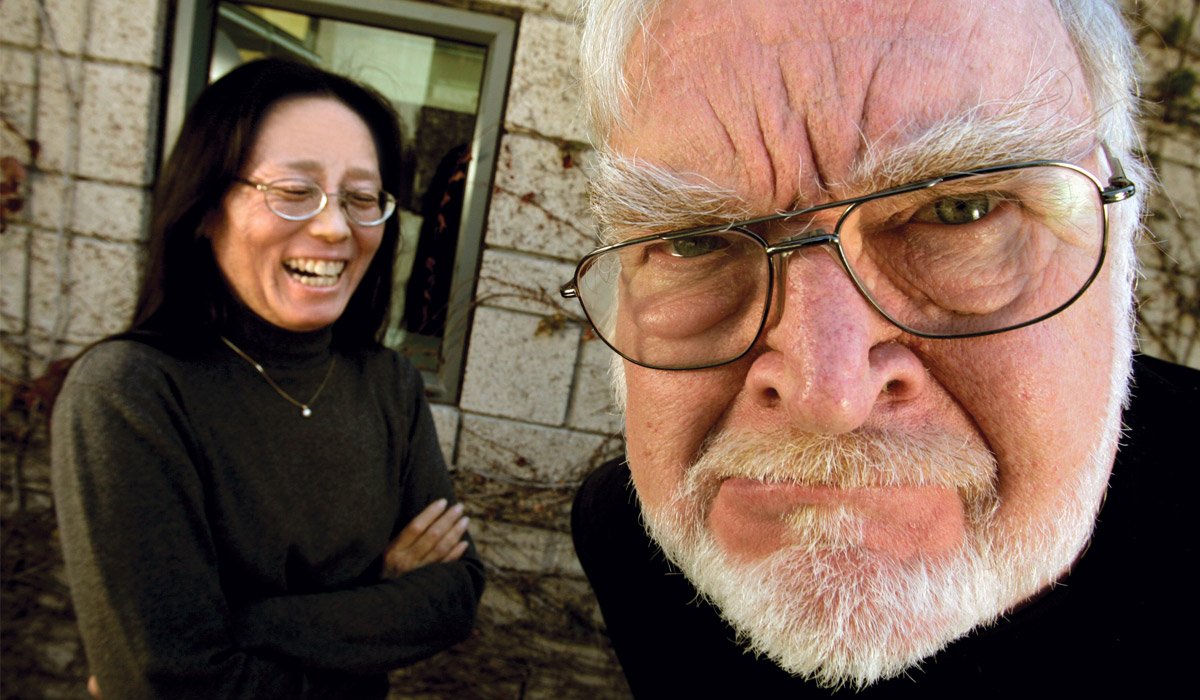‘A Unique and Fulfilling Privilege’
In the late 1990s, when the late Mihaly Csikszentmihalyi and Martin Seligman were founding the field of positive psychology, their vision involved creating several research centers across the country that would focus on the principles of this fledgling field. The goal was to help raise its visibility on university campuses.
That included CGU’s Quality of Life Research Center (QLRC), which Csikszentmihalyi and colleague Jeanne Nakamura started in 1999 and co-directed for more than 20 years until his death this fall at the age of 87.
Nakamura’s reaction to her old friend and colleague’s passing was a mixture of sorrow and, as befits someone who has made positive psychology her career focus, deep gratitude.
“I am constantly and keenly aware of what a unique and fulfilling privilege it has been to work with Mike in so many capacities here at CGU for the past two decades,” said Nakamura, an associate professor of psychology in the university’s Division of Behavioral & Organizational Sciences.
Not only did they direct the QLRC together, Nakamura and the man known at CGU simply as “Mike C.” also taught alongside each other. They worked jointly with students, co-published books and numerous papers, and talked on an almost daily basis about a question that, on its surface, is deceptively simple: What constitutes a good life?
Many have commented on Csikszentmihalyi’s kindness and patience—traits one doesn’t always expect to find in a figure regarded as a superstar internationally. But, for Nakamura, he was always giving with his time and support to anyone entering the QLRC offices on Dartmouth Avenue. He didn’t have to know them well; he was generous with friends and strangers alike.
That made a deep impression on students, Nakamura noted, and they appreciated “not just Mike’s creativity, intellect, and wisdom, but also his humor, warmth, and generosity— he could be unstinting with his time and attention. Visitors to the QLRC were often awed by this.”
Those personal qualities, Nakamura suggested, are as much a part of Mike’s legacy as the contributions he made to the field, starting with his landmark book Flow: The Psychology of Optimal Experience published in 1990, and “the remarkable breadth of his work’s influence,” she added.
That breadth of influence is extremely wide and cuts across many professions and ways of life that most people might not realize. His concept of flow certainly falls into household-name territory. People use the term “flow” today to describe an optimal mental state the way they use “google” to mean searching for something on the web.
“Along with the many individuals saying that Mike’s books or talks changed and enriched the way that they live their lives, his scholarship is being claimed as foundational by educators, designers, athletes, artists, managers, museum curators,” Nakamura said. “And the list goes on.”
- Learn more about the Quality of Life Research Center at CGU
- Read here for more on Jeanne Nakamura’s research collaborations with Mihaly Csikszentmihalyi
